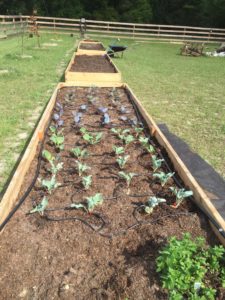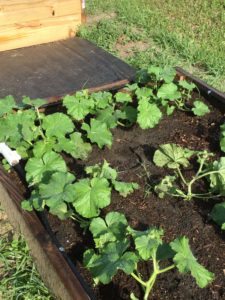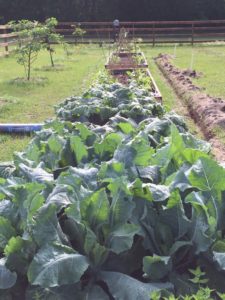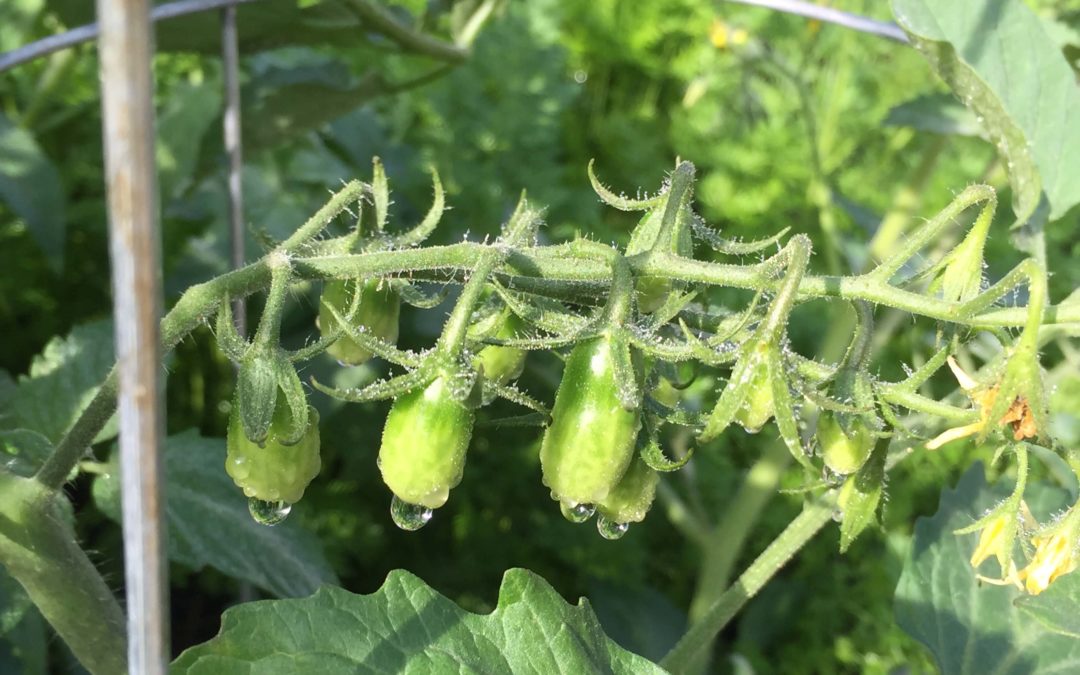Do you live in Central Florida and have a vegetable garden? If your answer is no, WHY NOT? Aside from the many health benefits like stress reduction and being a self-esteem booster, a hand-picked vegetable from your own garden tastes much better than what you could buy in the store. Living in Central Florida, we’re fortunate that we can grow vegetables all year long! No more going to the store for that missing ingredient – enjoy the convenience of getting fresh and healthy veggies from your own yard.
Never Planted a Garden? Check Out These Starter Tips.
Step 1: Locate a good spot for your garden. You want to make sure the area drains well and is close to a water source. Also the vegetables need at least 6 hours of direct sunlight each day, so factor that into your decision as well.
Step 2: Make a plan for your garden. Before you plant anything, make a drawing of what you plan to do. Include things like the name of the plant, where you want to locate in the garden, the date you are planting, etc. This will serve as your gardening/planting guide (and you’ll know later what you planted where and when they should be harvested). It will also help you organize the supplies you’ll need.
Step 3: Get your soil ready. It will help your garden if you add some organic matter to your soil (ideally at least 3 weeks before planting). This could be animal manure, compost, commercial soil mixes, or even rotted leaves. You should mix them well with the soil (a general guideline is to spread about 25-100 lbs of organic matter per 100 square feet). You should also test your soil, if possible. The best pH for vegetable gardens (in our sandy Florida soil) is between 5.8 and 6.3. If your soil is below 5.5, it means it’s acidic and you’ll need to apply lime. If it is above 7.0, it is alkaline which is tougher to fix. You will need to use a fertilizer with micronutrients. By the way, if you have never considered composting, this is a good time. Gardens love it and it helps eliminate your waste!


Step 4: Make a plan for your irrigation system and drainage. Vegetables need proper moisture in the soil to grow. They also can’t thrive in standing water from excessive rain or irrigation. Young plants don’t need as much water but they need it frequently. Whereas mature vegetables need more water but less often. The most efficient way to manage these varied watering needs is with your irrigation system. You don’t want to put all the time and work into creating a beautiful garden and have it fail because of a poor irrigation system or drainage problems.
Step 5: Plant, fertilize (and manage pests), and watch them grow! After you have planned out your garden and made the necessary preparations, it’s time to plant, tend and watch your plants grow! This is the fun part.
What veggies should you plant this month? Keep reading!
Ready to Plant?
Whether you are a newbie or “been there, done that” gardener, it’s sometimes hard to know which vegetables are good to plant at different times of year. As we start our winter months, it important to know that not all veggies grow well in the cooler months. We might have the occasional frost and some days the temperatures might dip a bit low. Your garden’s success will depend on planting the right vegetable at the right time of year. Here are some suggestions:

- Herbs – This is a great time of year to plant herbs. They love the cooler weather and your food will taste so much better cooking with fresh herbs. A few you might consider planting this month are: cilantro, dill, parsley, fennel, garlic, oregano, rosemary, sage, and thyme.
- Leafy Vegetables – Collards, Kale, Lettuce, Leek, Cabbage, Chinese Cabbage, Spinach
- Root Vegetables – Beets, Carrots, Potatoes, Radish, Turnips
- Fruits – Strawberries
- Others to consider: Broccoli, Brussels Sprouts, Cauliflower, Celery, Peas
If we do experience a frost or some freezing, don’t be alarmed if you come out and your veggies are ‘stiff as a board.’ They may appear translucent and you think they’ll collapse or turn to mush. Just leave them alone and they will thaw and be good as new.
Irrigation reminder: Proper watering of your vegetable garden is a big factor to your success. Remember, if you need assistance with adding a proper irrigation system or drainage system for your garden or ever need sprinkler repair in the Orlando area, make sure and give us a ring!

